Lyna Mohamad
Guidelines for medical practitioners to diagnose and treat high cholesterol levels were launched by the Cardiac Society Brunei Darussalam and the Ministry of Health (MoH) at the Radisson Hotel yesterday.
The National Hyperlipidaemia Guidelines 2022 aim to provide doctors, nurses and allied health practitioners with the tools to diagnose patients with high cholesterol levels, who should be screened, and treatments recommended to control their cholesterol levels to reduce associated risks.
The guidelines use a risk estimation tool recommended by the World Health Organization (WHO) and are based on diagnostic and treatment guidelines from major international organisations, such as the European Society of Cardiology and the American Heart Association.
They include recommendations for diets and exercises in line with previously-published guidelines.
“These guidelines represent a true team effort between various specialties,” said Minister of Health Dato Seri Setia Dr Haji Mohd Isham bin Haji Jaafar in his remarks during the launch.
The publication includes cardiology, endocrinology, nephrology, neurology, elderly care and primary health, said the minister.
“Our local experts have worked tirelessly during the peak of the COVID-19 pandemic in reviewing international publications and met through several virtual meetings to compile the guidelines,” he added.
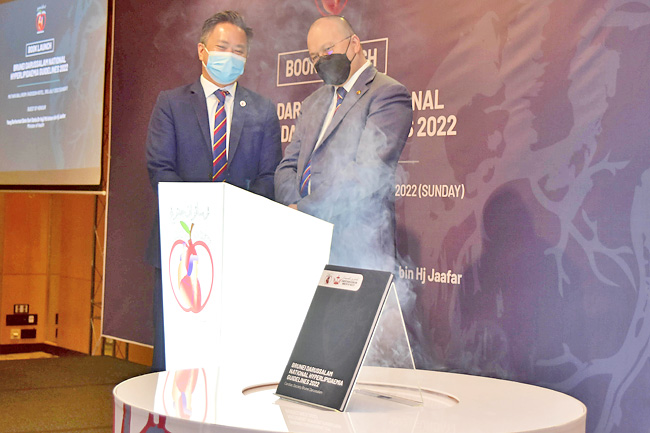
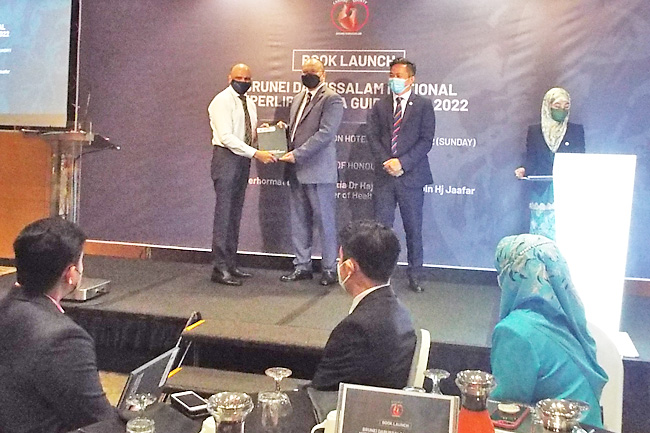
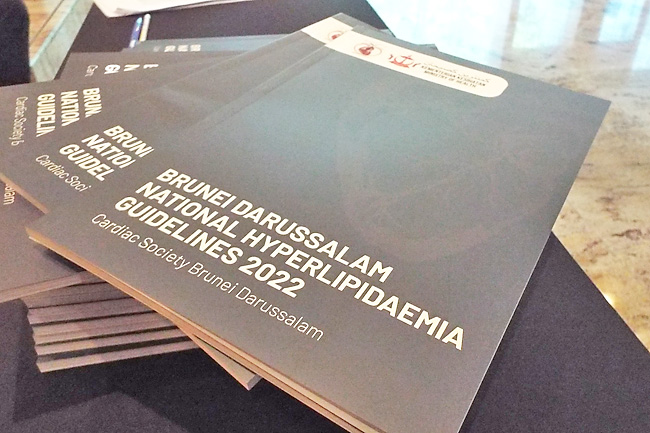
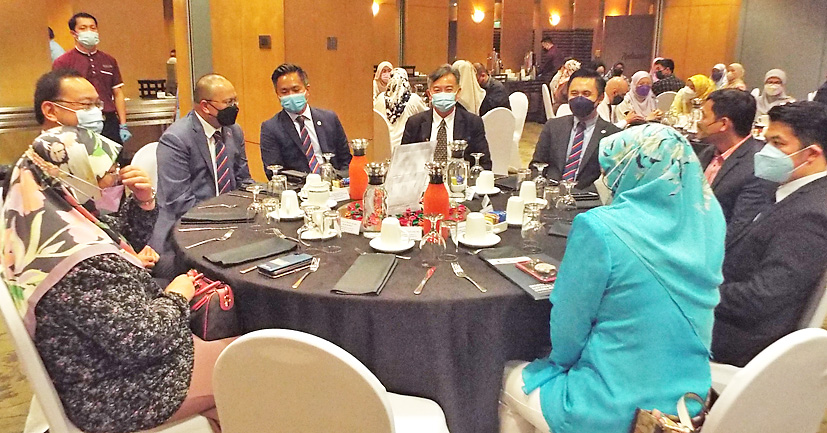
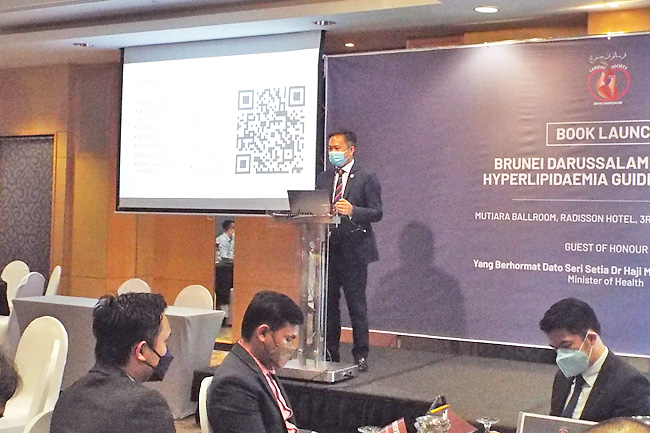
Cardiac Society Brunei Darussalam President Dr Sofian bin Dato Paduka Dr Haji Johar in his remarks said, “Cardiovascular disease is unfortunately one of the leading causes of death in the country.
“We know there are many well established risk factors for cardiovascular disease which include the classical risk factors of hypertension, diabetes, and hyperlipidaemia, all of which are highly prevalent in the Brunei Darussalam population.”
He said strenuous efforts should be made to identify and treat these risk factors to reduce the morbidity and mortality from these diseases.
“One of the main barriers to this effort is the lack of standardisation of diagnosis and treatment.
In the past there were no guidelines up to date with contemporary evidence and data,” he said.
“It is difficult to standardise practice, as the multiplicity of guidelines both regionally and internationally from healthcare providers often use guidelines that they are familiar with based on opinion and where they trained as well as the existence of many different risk estimation models for cardiovascular disease,” added Dr Sofian.
He said it is hoped that the newly launched guidelines will help to standardise care for individuals with hyperlipidaemia, in a similar fashion to the Brunei National Hypertension Guidelines launched in 2019.
“We realise the guidelines are a comprehensive document, so the busy clinician is encouraged to read the brief summary and take-home messages, as well as the key points at the start of each chapter to obtain important information.”






